
Misty D. Shields, MD, PhD, discusses the modern role for prophylactic cranial irradiation in extensive-stage SCLC management.

Your AI-Trained Oncology Knowledge Connection!


Misty D. Shields, MD, PhD, discusses the modern role for prophylactic cranial irradiation in extensive-stage SCLC management.
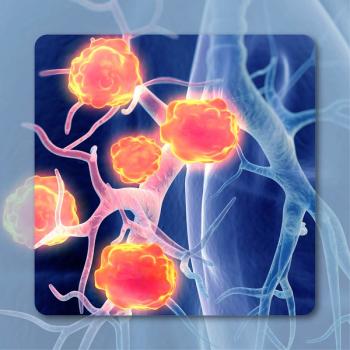
The variety of nonclassical EGFR mutations in NSCLC necessitates the development of unique treatment strategies based on individual mutational profiles.

KEAP1 and STK11 have emerged as potential biomarkers of response to immuno-oncology combinations in frontline NSCLC.
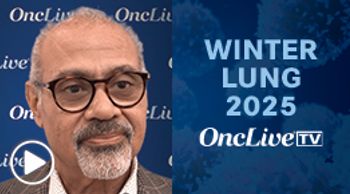
Tarek Mekhail, MD, MSc, FRCSI, FRCSEd, discusses a case study of a patient with early-stage, nonmetastatic lung adenocarcinoma.
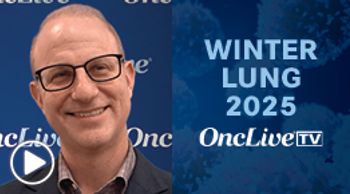
Benjamin P. Levy, MD, discusses the current clinical and developmental statuses of several ADCs for patients with non–small cell lung cancer.

Misty Shields, MD, PhD, provides a comprehensive overview of key updates in. the management of limited-stage small cell lung cancer.

Russell Hales, MD, discusses clinical data that challenge the use of post-operative radiotherapy in patients with non–small cell lung cancer.
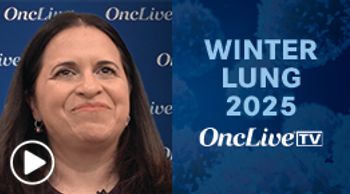
Estelamari Rodriguez, MD, MPH, discusses a case study of a patient with non–small cell lung cancer harboring an EGFR L858R mutation and a TP53 mutation.

Melissa L. Johnson, MD, discusses the evolution of immunotherapy approaches beyond PD-1 inhibition in lung cancer.

Walter J. Curran, MD, discusses the evolving use of radiotherapy in small cell cancer and data supporting its optimal use.

Misty D. Shields, MD, PhD, discusses the implications of the ADRIATIC trial of adjuvant therapy with durvalumab vs placebo in patients with LS-SCLC.
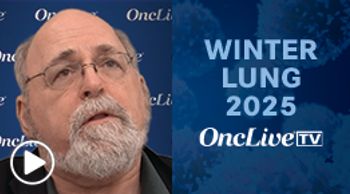
Corey J. Langer, MD, discusses how the use of adjuvant immunotherapy has affected the resectable NSCLC treatment paradigm.

Identifying biomarkers and the mechanism of action of antibody-drug conjugates may optimize benefits with these agents in non–small cell lung cancer.

Survival outcomes following curative resection in resectable NSCLC have been poor and, until recently, the main tool oncologists had at their disposal was neoadjuvant or adjuvant chemotherapy.

Balazs Halmos, MD, discusses the FLAURA2 and MARIPOSA trials of EGFR TKIs plus chemotherapy in EGFR-mutated non–small cell lung cancer.

Coral Olazagasti, MD, discusses her participation in a case-based discussion at the 21st Annual Winter Lung Cancer Conference®.

Samuel Rosner, MD, discusses ongoing efforts to individualize the use of perioperative/neoadjuvant therapy in early-stage NSCLC.

Thomas J. Lynch Jr, MD, details how treatments are evolving for patients with EGFR-mutated advanced non–small cell lung cancer.

Corey J. Langer, MD, FACP, discusses findings from the IMpower010 and KEYNOTE-091 studies, which examined immunotherapy in NSCLC.

Balazs Halmos, MD, discusses treatment strategies for patients with EGFR-mutant non–small cell lung cancer.
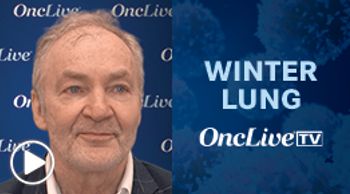
Wally Curran, MD, discusses current and developing treatment strategies for patients with stage III unresectable non–small cell lung cancer.

Benjamin Levy, MD, discusses the mechanism of action of antibody-drug conjugates in patients with non–small cell lung cancer.
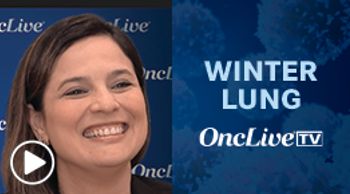
Ticiana Leal, MD, discusses the variety of DLL3-targeted agents in development for patients with small cell lung cancer and neuroendocrine tumors.

Bruna Pellini, MD, discusses the importance of developing circulating tumor DNA assays with increased sensitivity.
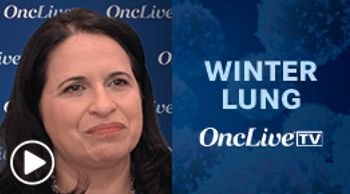
Estelamari Rodriguez, MD, MPH, discusses adverse effects associated with HER2-directed antibody-drug conjugates in non–small cell lung cancer.

To continue making progress in lung cancer treatment, investigators must keep pushing the science in new directions even as immunotherapy becomes more available in earlier lines.

If the FDA’s Oncologic Drugs Advisory Committee meeting held on February 10, 2022, was any indication, the days of applying foreign single country or region data to support regulatory approval are gone; instead, regulatory decisions are headed toward the need for regional consistency through multiregional clinical trials, which could help the United States overcome the persistent underrepresentation of racial and ethnic minorities in drug development.

As more agents are evaluated either in addition to or following PD-1/PD-L1 inhibitors, more information may be learned about how best to leverage alternate biomarkers, according to Marina C. Garassino, MD.

FDA approvals in recent years have started to carve out a role for immunotherapy in the frontline treatment of patients with small cell lung cancer.

With 9 approved markers in non–small cell lung cancer and a plethora of established and emerging therapies that have been designed to target them, the need for molecular testing is more important than ever.